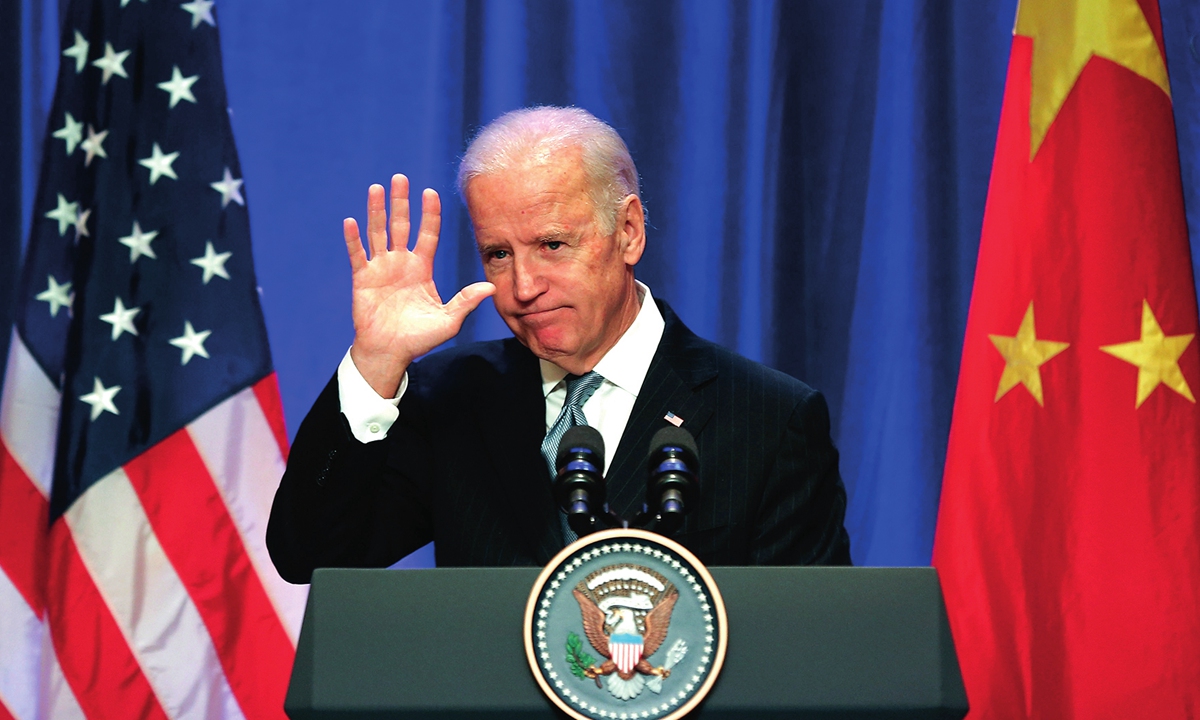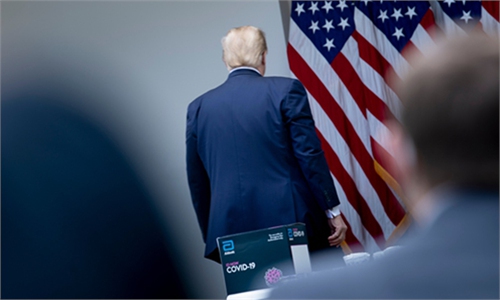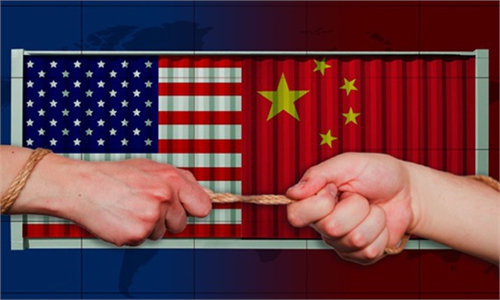More than two dozen psychiatrists Think Trump is dangerous and unfit for office
After imposing new restrictions on US investment in 31 Chinese companies and Secretary of State Mike Pompeo's remarks of denying Taiwan island is part of China, US President Trump will enact a series of hardline policies during his final 10 weeks, including a crackdown on China over so-called "forced labor" in Xinjiang, as well as sanctions on officials and companies with connections to Hong Kong, according to US news site axios.com.
The move also aims to cement Trump's legacy on China, the media report said, citing senior US officials. His political legacies on China will be widely known for its toughness including the launching of a yearlong trade war, leading the global suppression against Chinese high tech companies, smear and blame campaign over the coronavirus epidemic, and consulate closure. During his four-year tenure, the China and US relationship has hit its lowest point in decades, while his all-out anti-China stance has been supported by GOP and his voters.
"Being tough on China is seen as Trump's diplomatic achievement, which has been widely applauded in the US. Any turnaround at the point would be seen as a 'slap in the face' and it's now his final chance to play this card to the maximum extent," Xin Qiang, deputy director of the Center for US Studies at Fudan University, told the Global Times on Monday.
While Trump refused to concede the US election, tweeting that Biden "won" but that the election was rigged, thousands of his supporters protested in downtown Washington DC over the weekend, according to media reports. They also chanted Trump's campaign slogan such as "Make America Great Again" as the number of COVID-19 cases in the country crossed the 11-million mark, "reaching yet another grim milestone," some reports said.
Some Chinese experts believed that Trump does not want to disappoint his supporters, and continuing to be tough on China-related matter is one of his strategies, which has also been echoed by some of his "anti-China" group including Pompeo, FBI Director Christopher Wray, Attorney General William Barr and National Security Advisor Robert O'Brien.
China urged the US to manage the differences on the basis of mutual respect and explore cooperation in reciprocity but will firmly defend its own interests of sovereignty, security and development, Chinese Foreign Ministry spokesperson Zhao Lijian said on reports about Trump will come up with final measures targeting Chinese firms and human rights issues.
A healthy and stable China-US relationship is in line with the fundamental interests of people from the two countries, which also echoes common expectation of the international community, Zhao said.
The Trump administration is also expected to stage its final hysteria toward China by coming up with measures to stir up conflicts in the South China Sea, the Taiwan island, and may launch a crackdown on more Chinese scientific and research staff, Xin predicted. "It's also likely that the US will shut down all the Confucius Institutes in America, casting shadow over future people-to-people exchanges between China and the US," he said.
A trap for Biden?
Diao Daming, an associate professor at the Renmin University of China in Beijing, told the Global Times on Monday that "Although Trump is becoming a lame duck president in his last days in the White House, he can still create more legacies by signing executive orders, although the executive organs under different departments are unlikely to cooperate."
"Trump is actually setting a trap or planting a landmine for the Biden administration," Shen Yi, a professor at the School of International Relations and Public Affairs of Fudan University, told the Global Times.
According to the White House website, "the Executive Order on Addressing the Threat from Securities Investments that Finance Communist Chinese Military Companies" that the Trump administration issued on Thursday will take effect on January 11.
"The date tells everything. By that time, the election will be concluded with a final result, so Trump is throwing a problem into the hands of Biden - if Biden cancels the order, Trump can assert Biden is a Panda Hugger [a Western politician who is being supportive to China]; if Biden keeps the executive order, Trump believes that China would be disappointed and hit back, so the China-US ties will remain tense or even get worse," Shen said on Monday.
Before the election, Trump made great efforts to stigmatize China as he thought the COVID-19 epidemic situation was the biggest obstacle to his reelection, and after the election, he has become more angry as he believes it was the coronavirus that made him lose the reelection, so he has directed his anger toward China again, Diao said.
Shen said that before the COVID-19 pandemic, Trump made many friendly remarks about China and the Chinese national leader, "but he is such an emotional and unpredictable person that we can't use a normal person's mentality to judge him. The current hostility toward China and the friendly remarks of the past are all the reflections of his unusual personality."

Joe Biden in Beijing on December 5, 2013 Photo: AFP
A long fight
Between retaliation against US provocations and de-escalation of tensions with the US, Chinese analysts said China needs to be careful and cautious, and there will be no surprises as long as China is fully prepared for a long fight with the US whether it is governed by Trump or Biden.
On one hand, China needs to precisely retaliate against the Trump administration and make it feel the pain if the provocations harm Chinese core interests; on the other hand, if the provocations are just bluffing with no concrete damage, China can ignore them and focus on communicating with Biden's team to minimize the damages, Diao noted.
"The current situation is even more complicated than the time before and during the election," because sometimes it will be hard to tell which force is behind the new provocations and offensives between November and January, Diao said, "so China's retaliation against the US should precisely hit the Trump administration, and minimize the difficulty for fixing the bilateral ties with the next administration."
The US military is unlikely to support the "final madness" of the Trump administration as they know the risks of a war with China, but in the fields of trade and investment, Trump is likely to leave some legacies, and the Biden administration would also likely inherit these legacies and use them as leverage to bargain with China, Diao further noted.
Shen said that "we can't expect Biden to cancel all policies made by the Trump administration. That would be na?ve. China is fully prepared for more conflicts with the new administration. The Biden administration will only fix Trump's policies if it finds them damaging US interests. Being prepared for a long fight is always the wise choice for China."
- Trump raises chance of conceding
- The last card up Trump's sleeve is his huge number of supporters
- Trump admits for the first time Biden 'won'
-
-
Trump cannot use China as a badge of honor before leaving
The US is a real tiger on the global stage, but when it comes close to China's coastal waters and touches China's core interests, it becomes a paper tiger. With just over two months left for the Trump administration, any attempt to flex its muscle or flaunt will receive embarrassment and humiliation. China is not a badge of honor for the US political elite to daub. -
China can deal with final 'crazy' Trump moves: Global Times editorial
The Chinese people don't want to be involved in trouble after the US election. But we must make the Trump administration know that we had not hesitated to fight back their provocations during the peak of their rule, nor will we be reluctant to strike back when necessary in the coming days. Now may be their craziest time, but we know it's also their most vulnerable time. They lack mobilization abilities to promote extreme confrontation with China.
Related posts:








